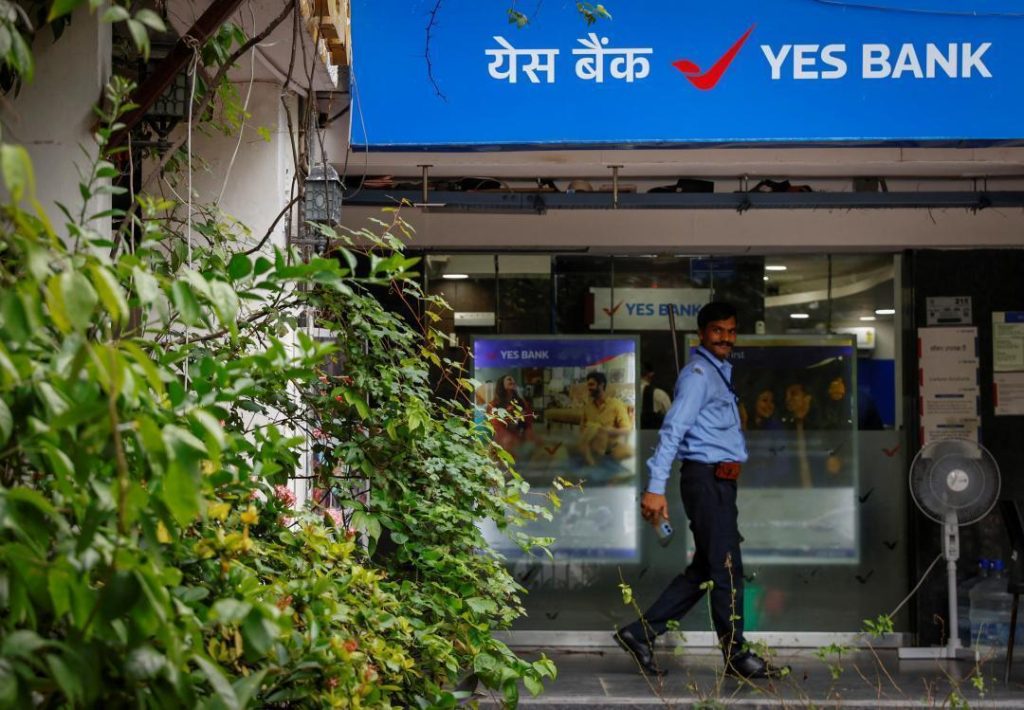
Japan’s Sumitomo Gets RBI Nod for 25% Stake in Yes Bank
In a significant development, Yes Bank Ltd has announced that Japan’s Sumitomo Mitsui Banking Corporation (SMBC) has received approval from the Reserve Bank of India (RBI) to acquire up to 24.99% stake in the company. This move comes as a major boost for Yes Bank, which has been struggling to recover from a series of controversies and financial setbacks in recent years.
According to an exchange filing by Yes Bank, the RBI has clarified that SMBC will not be classified as a promoter of Yes Bank post-acquisition. The approval is valid for one year, giving both parties ample time to finalize the deal and ensure a smooth transition.
The development was first reported by Moneycontrol, citing an exchange filing by Yes Bank. The RBI approval comes as a significant relief to investors and stakeholders, who have been eagerly waiting for a breakthrough in the bank’s fortunes.
So, what does this mean for Yes Bank, and what implications does it have for the Indian banking sector? Let’s dive deeper into the details to understand the significance of this development.
Why is this deal significant for Yes Bank?
Yes Bank has been facing a series of challenges in recent years, including a liquidity crisis, high non-performing assets (NPAs), and a decline in its market share. The bank’s fortunes began to decline in 2018, when it faced a series of governance issues and a leadership change. Since then, the bank has been struggling to recover, with its stock price plummeting and its market share declining.
The deal with SMBC is significant because it brings in a strong and stable partner that can help Yes Bank recover from its financial woes. SMBC is one of Japan’s largest banks, with a strong track record of stability and growth. The deal is expected to bring in new capital, expertise, and resources to Yes Bank, which can help the bank to recover its financial health and improve its operations.
What does this mean for the Indian banking sector?
The deal between Yes Bank and SMBC has significant implications for the Indian banking sector. Firstly, it highlights the increasing interest of foreign banks in the Indian market, which can bring in new capital, expertise, and competition to the sector. This can lead to better services, more innovative products, and improved customer experience for Indian consumers.
Secondly, the deal can help to strengthen the country’s financial stability by bringing in a strong and stable partner that can help to mitigate the risks associated with Yes Bank’s troubled past. This can also help to improve the bank’s governance and risk management practices, which can have a positive impact on the overall financial health of the sector.
Finally, the deal can also have implications for the country’s financial reforms. The RBI’s approval of the deal sends a strong signal that the regulator is open to foreign investment in the banking sector, which can help to attract more foreign capital and expertise to the sector.
What next for Yes Bank and SMBC?
Now that the RBI has given its approval for the deal, both Yes Bank and SMBC will need to finalize the terms of the agreement and ensure a smooth transition. This will involve a series of steps, including the transfer of shares, the appointment of new board members, and the integration of SMBC’s operations with Yes Bank’s existing business.
Yes Bank will also need to work closely with SMBC to implement a turnaround strategy for the bank, which can involve a range of measures such as cost cutting, asset sales, and investments in new technologies and products. The bank will also need to focus on improving its governance and risk management practices, which can help to restore investor confidence and improve its financial health.
Conclusion
The deal between Yes Bank and SMBC is a significant development for the Indian banking sector, which can bring in new capital, expertise, and competition to the sector. The RBI’s approval of the deal sends a strong signal that the regulator is open to foreign investment in the banking sector, which can help to attract more foreign capital and expertise to the sector.
For Yes Bank, the deal can be a game-changer, bringing in a strong and stable partner that can help the bank to recover from its financial woes. The bank will need to work closely with SMBC to implement a turnaround strategy and improve its governance and risk management practices.
Overall, the deal is a positive development for the Indian banking sector, which can help to strengthen financial stability, improve customer experience, and attract more foreign capital and expertise to the sector.
Source:






